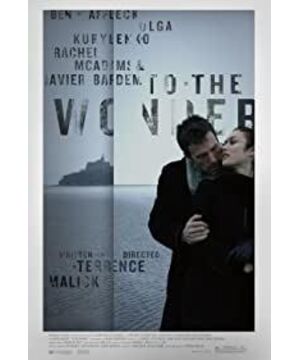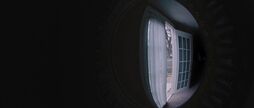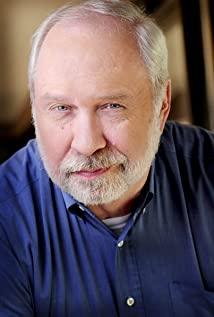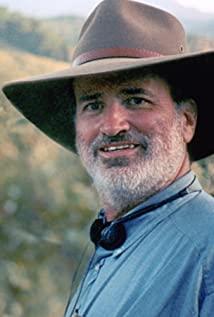One of the things that struck me about this movie was the industrial leak. I actually thought it would end with Ben and the heroine dying of lead and cadmium poisoning a few years later. Second, rachel mcadams said i've been waiting for you. Rachel's role is by no means cannon fodder, on the contrary, her appearance makes me even more unable to understand the male lead. Why can't the male lead give up the female lead? Why did you agree to get married? Why is the wedding only the two of them? Poor Rachel! ! The male lead and rachel might be better. Speaking of which, Ben and the heroine really live outside of human society. The design of their house, ben's pretense to cope with the neighbor's dinner, ben's work alone, day-to-day routine, a wedding for two, and so on. I don't understand how they deal with the extreme loneliness that fills this film, and why they can't help the town change or leave when they're trapped in this place. Yet the protagonists have a human side, especially the heroine's silence when Tatiana says her dad's place is fun. Personally I kind of wish the two protagonists (and the priest) could be portrayed a bit more human, like the lovable and pitiful Rachel. However, this suffocating depression caused by the inhumanity of the protagonist may also be deliberately exaggerated by the director.
Priest and ben are really two forms of one person. Ben is also two personalities, just like the heroine. Both ben and the pastor were so aloof, so far away from the ordinary, so few words, contemplative, unhappy, and compassionate. The pastor's kindness, and Ben's occasional indifference, make me feel that they complement each other as one personality. Ben's lack of emotional expression and the heroine's excessive emotional expression made me question the humanity of the two protagonists again. Why are they so attached? Maybe I tooyoungtoonaive do not understand it.
The director's grasp of loneliness and pessimism is really powerful. As ben said, in his eyes everything is construction and ruin, like idealized love and real marriage, like deep-rooted loneliness, like heavy metal pollution and diseases passed down from generation to generation, like bankrupt Rachel's ranch. Night Small town houses, idle days, alternate meaningless alternations of time, sunset and wilderness, construction site and noise, all express endless pessimism, emptiness, and isolation.
The soundtrack is superb. The violin's gradually rising and rendered feelings are too in place, and the main theme of haunting also renders the depressing atmosphere in various ways.
In addition, the director really seldom shoots the face, but a lot of curtains. Rachel's house is beautiful, but it's horrible when the lights are turned off. I'm afraid Rachel can't think about it. The heroine poured the drug when she lost her temper, and then sprayed it out and let Ben pour it back, which made me tortured.
I really like the various sky shots. Clouds of different shapes, red and blue edges on the horizon. Extremely pessimistic beauty.
In the end, the scene captured by the heroine trust fall and the heroine was repeated several times, especially between various entanglements and suffocating pessimism, romantic death.
In the end, maybe the priest saved everything in this place where everything can go wrong, and let everything that may have collapsed continue to exist. Just like the sick adult resident said, don't leave this place for West Kansas. Except for a superhuman free tangled soul like the heroine, probably no one can really escape this place, especially not to struggle with The mysterious and desperate hero of his strength, my Ben.
View more about To the Wonder reviews











